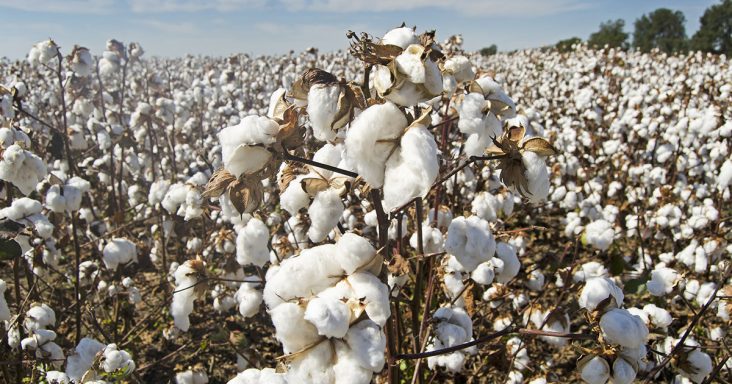Lake City’s Steve Cobb named Sunbelt Ag Expo Southeastern Farmer of the Year
by November 1, 2023 12:13 pm 879 views

Lake City native Steve Cobb has been selected as the overall winner of the Sunbelt Ag Expo Southeastern Farmer of the Year award for 2023. Cobb Farms is a partnership enterprise that began over 50 years ago in Craighead County. It comprises 4,500 acres (2,500 rented and 2,000 owned), and it produces crops, vegetables, and show pigs.
The award has been bestowed on a southern farmer every year since 1990. Cobb will receive a $15,000 cash prize among other prizes.
“I was born on a subsistence farm where my parents owned 40 acres given to my mother by her father. Over time, they rented another 200 acres. Our family farm looked like ‘Old McDonald’s Farm’ that you see in children’s books. We raised cotton, wheat, soybeans, and enough corn to feed the livestock, which consisted of two dairy cows that we milked daily and three brood sows. The barn yard and house yard were full of chickens that produced eggs, and we planted a big garden every year,” Cobb said.
Cobb grew up and went to school with his future wife, Terri. They married in 1977, and she had a 32-year career as a second-grade teacher, retiring about a decade ago.
Each year, about 1,800 acres of irrigated corn is grown with an annual yield of about 200 bushels per acres. Cobb typically harvests about 2,500 acres of cotton with a yield of about 1,300 pounds per acre. His operation grows about 100 acres of peanuts every year with a yield of about 2.5 tons per acre. In addition to that, his operations raise more than 1,000 show pigs per year and grow tomatoes.
Cobb said farming challenges have been numerous through the years.
“The late 1990s basically changed the entire swine industry. Before that time, it was mostly family-owned operations, but that’s no longer the case. There was a market crash in 1998 that forced us to change our entire model from breeding stock production to focusing on show pig production. We also had to be flexible in marketing our product and finding a sustainable customer base. My son Aaron also stepped up big time to support this important and much-loved part of our farm business,” he said.
Disaster struck the farm in October of 2014, when a hailstorm hit just days before harvest. It destroyed about 75% of the operation’s cotton crop.
That same year, the farm’s grain brokerage filed for bankruptcy which resulted in a total loss of the farm’s corn crop. After these problems, peanuts were added to the crop rotation to give the farm more flexibility.
“On a more philosophical note, what I’ve learned from farming is how important it is to appreciate the cycle of growth, whether it’s crops, baby animals, children, or grandchildren. Everything is constantly renewing. Agriculture mimics life in that way, being a constant display of development to fruition. And lastly, I’ve learned how important the ag industry, with its production and delivery system, is to our survival as a species. The scale of farm operations has definitely changed but the roots are the same; they’re eternal. What we do is essential for all life as we know it. I’m grateful and blessed to be part of that,” Cobb added.
